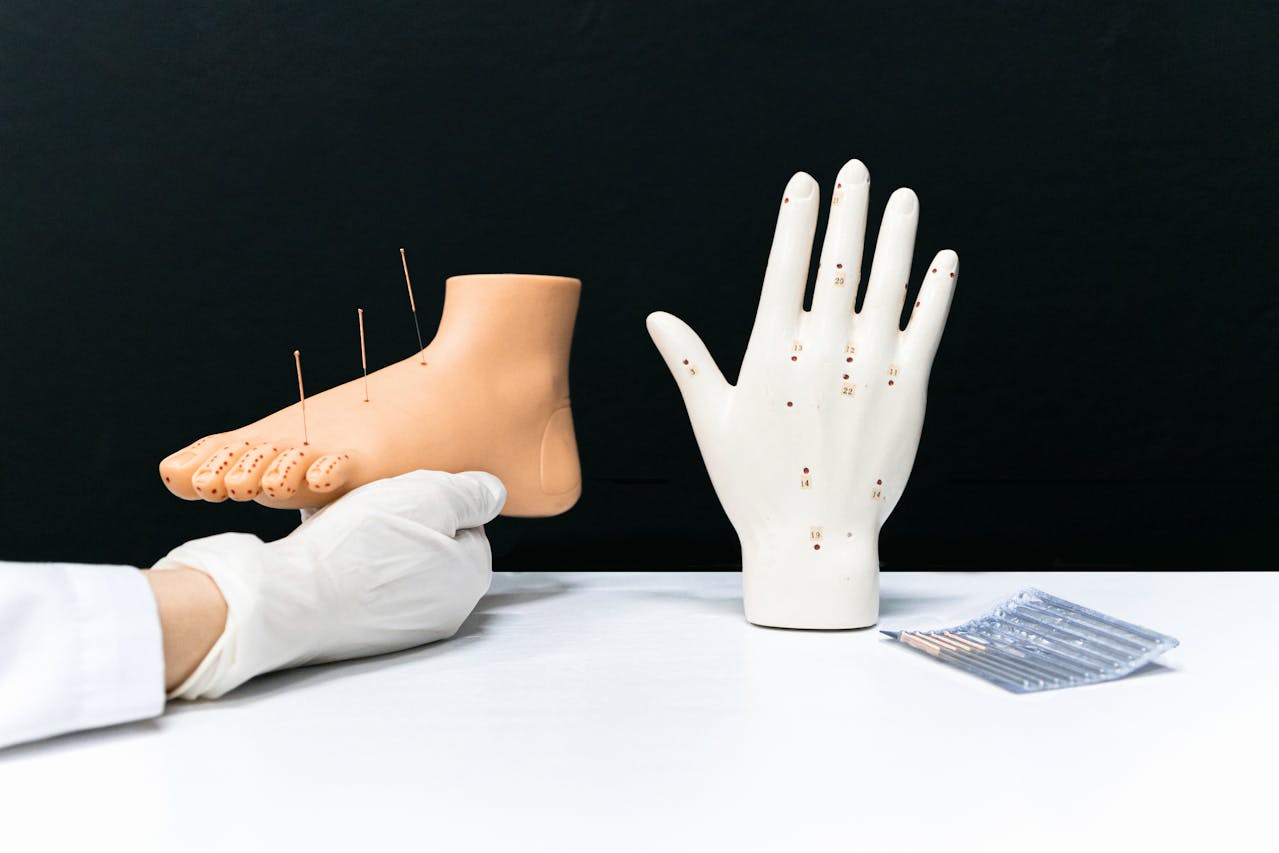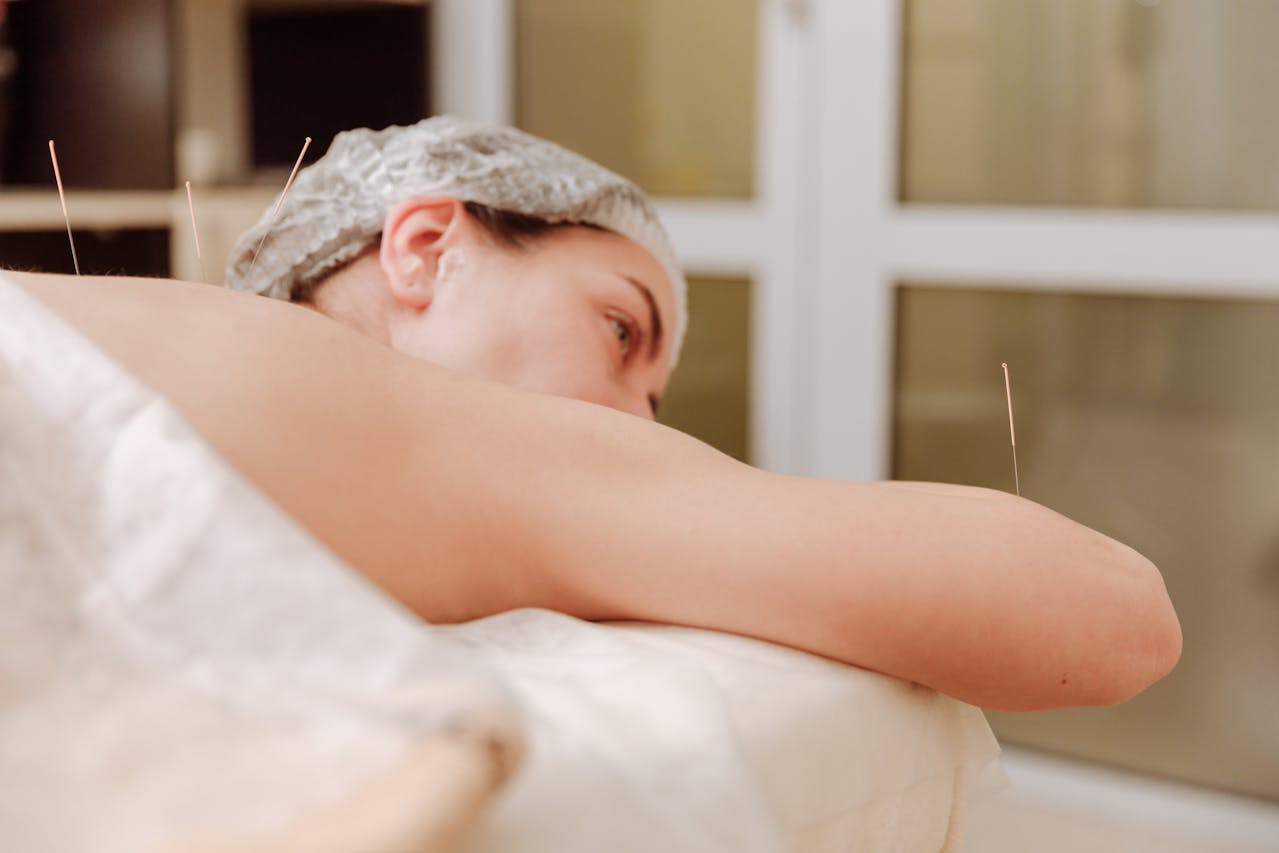Acupuncture: Myths and Benefits
Acupuncture, a key component of traditional Chinese medicine, has been practiced for over 2,000 years. In recent decades, it has gained popularity in the West, with people seeking natural and holistic solutions for various health issues. However, despite its growing acceptance, acupuncture is still surrounded by myths and misconceptions that make some hesitant to try it. This article will explore the most common myths about acupuncture, debunk them, and highlight its potential benefits.

What is Acupuncture?
Acupuncture involves inserting thin, sterile needles into specific points on the body, called acupuncture points, to restore the flow of energy, or "Qi" (pronounced “chee”). Traditional Chinese medicine holds that disruptions or imbalances in Qi cause illness, and acupuncture helps to correct these imbalances. Modern science offers another perspective: acupuncture stimulates nerves, muscles, and connective tissues, promoting natural healing.
Common Myths About Acupuncture
Myth 1: Acupuncture is Painful
One of the biggest misconceptions is that acupuncture is painful. Since it involves needles, many assume it will be an uncomfortable experience. However, acupuncture needles are incredibly thin—much finer than typical hypodermic needles used for injections. Most people feel only a slight prick or no pain at all when the needles are inserted. Some even describe the sensation as calming or relaxing.
Myth 2: Acupuncture is Only for Pain Relief
While acupuncture is well-known for its effectiveness in relieving chronic pain, such as back or neck pain, it is far more versatile. Acupuncture has been used to treat a variety of conditions, including headaches, migraines, digestive issues, anxiety, insomnia, and even infertility. Its holistic approach supports overall health and well-being, not just pain management.
Myth 3: There’s No Scientific Evidence Behind Acupuncture
Though acupuncture has ancient roots, modern research has provided scientific support for its effectiveness. Numerous studies have shown that acupuncture can stimulate the body’s natural healing processes. It has been proven to help with pain relief, reduce inflammation, and even improve mental health by stimulating the release of endorphins, the body’s natural painkillers and mood enhancers.
Myth 4: Acupuncture is a "One-Time Fix"
Some believe that a single acupuncture session can resolve their health issues instantly. While it’s true that many people feel improvements after one session, acupuncture is typically more effective when done as part of a series of treatments. The number of sessions depends on the individual’s condition, with chronic issues often requiring ongoing treatments for the best results.
Myth 5: Acupuncture is Unsafe
When performed by a licensed, trained practitioner, acupuncture is very safe. Acupuncture needles are sterile, single-use, and disposed of after each session, significantly reducing any risk of infection. Licensed acupuncturists undergo extensive training and are equipped to ensure a safe, effective experience.
The Benefits of Acupuncture
Acupuncture offers a wide range of health benefits that go beyond pain relief. Let’s look at some of the most notable ones:
Pain Management
Acupuncture is perhaps best known for its ability to relieve chronic pain. It is widely used to treat conditions such as arthritis, lower back pain, neck pain, and migraines. The stimulation of specific points encourages the release of endorphins and other chemicals that help reduce inflammation and discomfort.
Stress and Anxiety Reduction
Acupuncture helps regulate the body's stress response by calming the nervous system and encouraging the release of calming neurotransmitters like serotonin and dopamine. Many people experience a deep sense of relaxation during and after treatments, making acupuncture an effective tool for managing anxiety and stress-related conditions.

Improved Sleep
For those suffering from insomnia or disrupted sleep patterns, acupuncture can offer relief by addressing underlying imbalances that cause restlessness. Regular treatments have been shown to promote deeper, more restful sleep and help regulate sleep cycles.
Boosting the Immune System
By improving the body’s circulation and regulating the flow of energy, acupuncture can boost the immune system. It encourages the body’s natural defense mechanisms, helping to prevent illnesses and speed up recovery when you’re sick.
Enhancing Digestive Health
Acupuncture can improve digestive function by reducing inflammation in the gut and promoting better nutrient absorption. It is used to treat conditions like irritable bowel syndrome (IBS), acid reflux, and bloating, by supporting the body’s natural digestive processes.
Women’s Health and Fertility
Many women turn to acupuncture for help with menstrual irregularities, menopause symptoms, and fertility. Studies have shown that acupuncture can improve reproductive health by regulating hormones, improving blood flow to the uterus, and reducing stress—all of which play crucial roles in fertility.

How to Get Started with Acupuncture
Finding a Qualified Practitioner
To ensure a safe and effective acupuncture experience, it’s important to choose a licensed practitioner. Look for someone certified by reputable acupuncture boards or organizations, such as the National Certification Commission for Acupuncture and Oriental Medicine (NCCAOM). Licensed acupuncturists have undergone rigorous training and are equipped to tailor treatments to individual needs.
Setting Realistic Expectations
Acupuncture works best when incorporated into a long-term wellness plan. Some people notice immediate improvements, while others may need a few sessions to feel the full benefits. It's important to be patient and communicate with your practitioner about your symptoms and progress.
Debunking the Myths, Embracing the Benefits
Acupuncture is an ancient healing practice that continues to benefit millions of people today. While myths and misconceptions can create hesitation, the scientific backing and growing popularity of acupuncture prove its effectiveness in addressing various health concerns. From pain relief to stress reduction and beyond, acupuncture offers a holistic approach to enhancing well-being.
If you're considering acupuncture, remember to consult with a qualified practitioner and stay open to the experience. With regular treatments and realistic expectations, you might discover an effective, natural solution to improving your health and quality of life.












